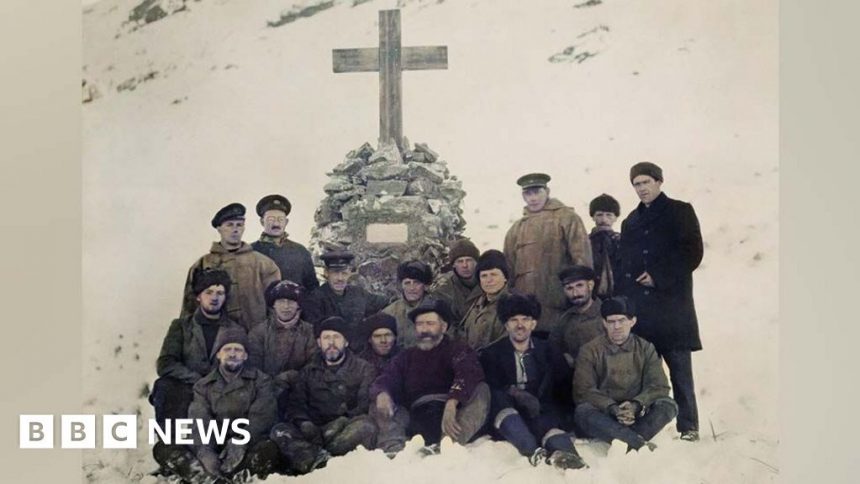Shackleton cross makes 7,000-mile journey to Dundee
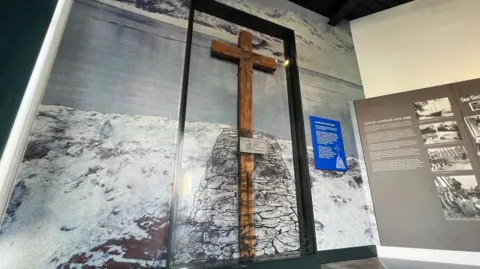 BBC
BBCA poignant memorial to polar explorer Sir Ernest Shackleton from his crew has gone on display in Dundee after a journey of more than 7,000 miles from the South Atlantic.
Shackleton died in 1922 in South Georgia during his final expedition. The Hope Cross was constructed by crew members who could not attend his funeral.
The 3m (9.84ft) memorial is now on display beside RRS Discovery, the ship which first took Shackleton to Antarctica in 1901.
Its unveiling coincides with the release of a new documentary on Shackleton’s doomed Endurance expedition and the 2022 hunt for the sunken vessel.
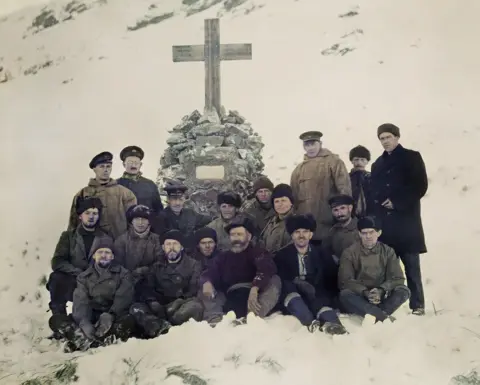 Original autochromes by GH Wilkins, Rowett-Chojecki Collection
Original autochromes by GH Wilkins, Rowett-Chojecki CollectionThe wooden cross stood for almost 100 years at King Edward Point, South Georgia, near Grytviken, before it was replaced with a replica in 2018 to preserve the original memorial from the elements.
The original cross weighs about 30kg (66lb) and was made with salvaged wood from a whaling station.
It was painted white to protect the wood, but decades of Antarctic weather have returned it to its natural state.
Dundee Heritage Trust heritage manager Sophie Hinde said: “The Quest crew members had to leave Ernest behind when he passed away to continue on the rest of the expedition.
“There were thoughts that his body would be taken to England for a funeral, but it was actually buried in Grytviken and the crew put up the cross because they wanted him to be memorialized.”
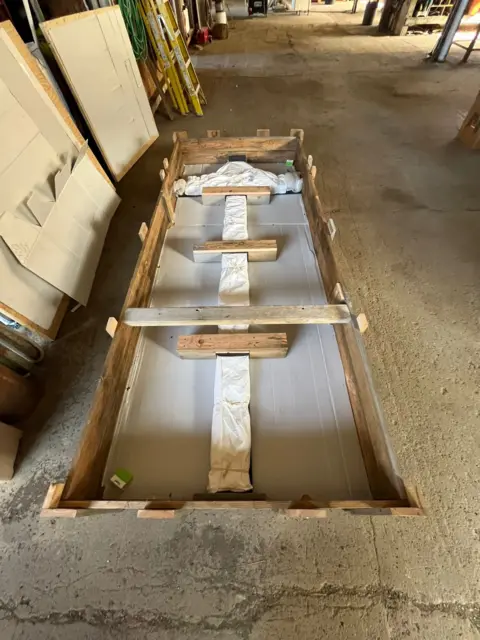 South Georgia Heritage Trust
South Georgia Heritage TrustIts remote location meant few people were previously able to visit the memorial.
“If you wanted to go down to South Georgia, the only way to do it is on a cruise ship. There aren’t that many, and the season is quite short,” said Ms Hinde
“We were approached by the South Georgia Heritage Trust, who had the cross in a warehouse after it was taken down in 2018 for conservation reasons.
“They just wanted to give people the space to see it.”
The cross was taken on a three-month journey on the RRS David Attenborough from Grytviken to Harwich, before being briefly stored at the British Antarctic Survey in Cambridge.
Ms Hinde said: “Then we went down in a van and collected it, so it’s been quite a journey.
“It was actually in a very good condition.”
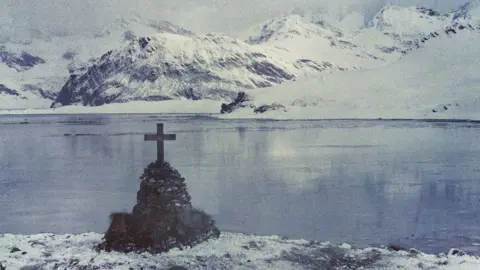 Original autochromes by GH Wilkins, Rowett-Chojecki Collection
Original autochromes by GH Wilkins, Rowett-Chojecki CollectionInterest in Shackleton’s adventures remains high more than a century after his death.
Ms Hinde said: “I think a lot of people appreciate his spirit of adventure.
“He’s probably best known for his Endurance expedition, where he rescued his crew after their ship had sunk in the Antarctic winter.
“His leadership is a thing that people come back to again and again – the adventures that he went on are incredible.”
Who was Sir Ernest Shackleton?
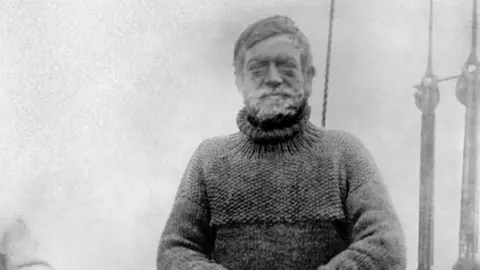 PA
PAErnest Shackleton was born in County Kildare, Ireland, in 1874.
In 1901, alongside explorer Robert Falcon Scott, he got closer to the South Pole than any other European explorer.
Shackleton’s most famous mission was his plan to cross the South Pole on board his ship The Endurance.
In 1915, the boat became trapped in ice, and his crew abandoned ship, crossing onto floating ice, where they decided they were going to live until they could be saved.
In April 1916, Shackleton took five crew members in a small boat in search of help for the others, where they travelled 807 miles (1,300km) of ocean before reaching the island of South Georgia.
The last voyage Ernest Shackleton took was on board the Quest in 1922.
He had planned to explore Alaska and islands nearby, but lost his funding.
Instead, he headed to the South Pole to explore islands around Antarctica but died of a heart attack on board the ship, aged 47.
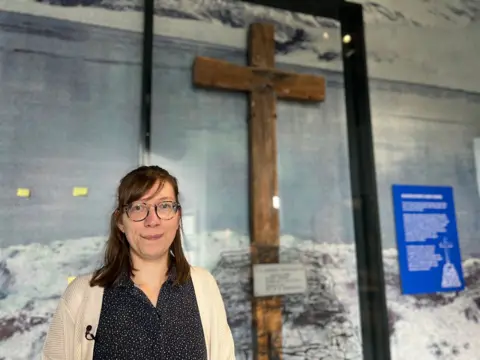
The Hope Cross is on long-term loan from the South Georgia Museum.
Ms Hinde said: “Antarctica from 1901 to 1904 is the main expedition that we talk about here.
“But actually, the early age of Antarctic exploration ran right until this last expedition, the Quest in 1922, so it rounds off the stories that we tell her quite nicely.”
Shackleton’s granddaughter Alexandra will attend a private rededication ceremony to the cross later.
She said: “I am absolutely delighted to see the cross here in a city that my grandfather knew so well.
“Our family is very grateful to all who have made this possible.”




